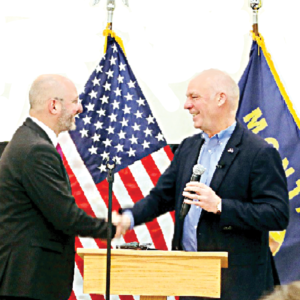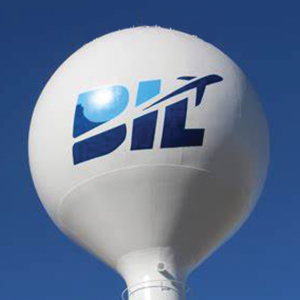By Aikta Marcoulier, SBA Regional Administrator
The pandemic confirmed the essential role that small businesses play in our daily lives. It sounds cliché, but locally owned small businesses truly are the heart and soul of our cities and towns. The holiday shopping season is a crucial time for small retailers and restaurants that depend upon the boost in sales earned between Thanksgiving and Christmas.
Not so long ago, it was an annual holiday tradition to travel downtown and shop at one of the many locally owned main street businesses. Brick-and-mortar businesses would promote their best deals of the year in hopes of luring shoppers to make a purchase, or at least browse their shelves full of merchandise. Today, online shopping has quickly become the preferred way Americans buy their holiday gifts. Recent estimates show that more than 80 percent of shoppers make regular online purchases throughout the year.
Given the dramatic shifts in the retail environment over the last twenty years, those holiday scenes and traditions are in danger of passing into the realm of nostalgic folklore.
To better compete, small business owners have become very innovative in the way they sell and promote their products and services. An encouraging transformation born out of the pandemic is that many entrepreneurs pivoted operating models to include e-commerce platforms, or changed product offerings, to meet the new demands of the online consumer. Some are even bringing back the retail traditions of the past by providing personalized one-on-one assistance to customers and the selling of locally produced niche items found nowhere else in town. Cottage businesses have started in record numbers as people realized their dream of small business ownership could begin in their basement or garage.
The success of this year’s holiday shopping season will have a huge impact here in Montana and across the nation. Montana’s 130,000 small businesses generate almost 50 percent of the jobs in our state, employing 253,000 Montanans. As you shop locally at one of the 13,000 retail small businesses, you’re not only proving unique and memorable gifts, but you are also helping boost Montana’s economy and directly supporting local families. If you are leaning more towards creating memories verses traditional gift giving, consider one of the 7,000 small businesses that offer entertainment or recreational activities.
Small businesses are the backbone of our democracy, and the solution to our most challenging economic problems. If you’re an entrepreneur and need advice, please consider exploring the tools and resources of the U.S. Small Business Administration and its partners. SBA’s resource partners include the Montana Small Business Development Center (SBDC) network with 10 locations throughout the state, our statewide Procurement Technical Assistance Centers, the Women’s Business Centers in Bozeman and Missoula, and SCORE. Each of these partners can help identify strategies to become more competitive and viable in what will likely be an ever-shifting business landscape.
In addition to our formal partners, small business owners can get involved with local support organizations such as chambers of commerce, business districts, and neighborhood associations. These organizations are actively involved in coordinating events and promotions to attract foot traffic to their small business members including local bazaars and shop small/dine small/entertain small, focused festivals.
This holiday season, please join me in making at least one purchase from a locally owned small business in your city or town. These business owners are the true heroes of our communities, and they deserve our support, thanks, and appreciation.




